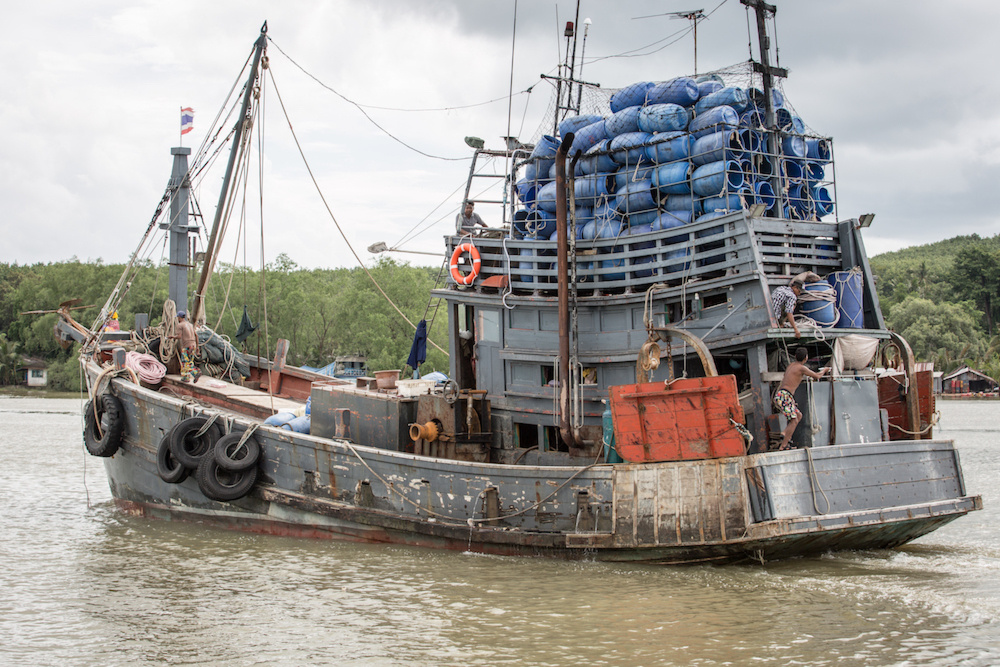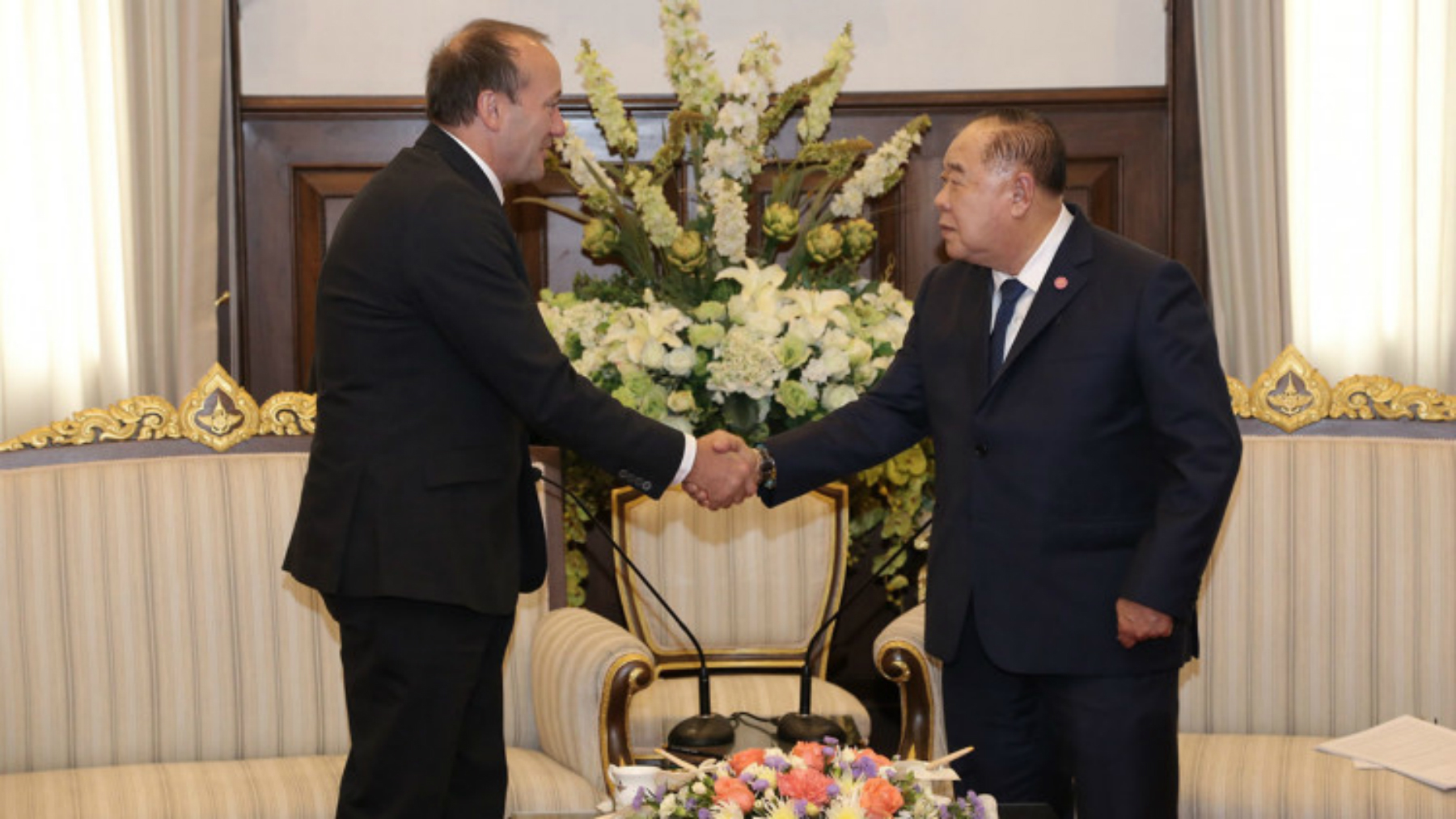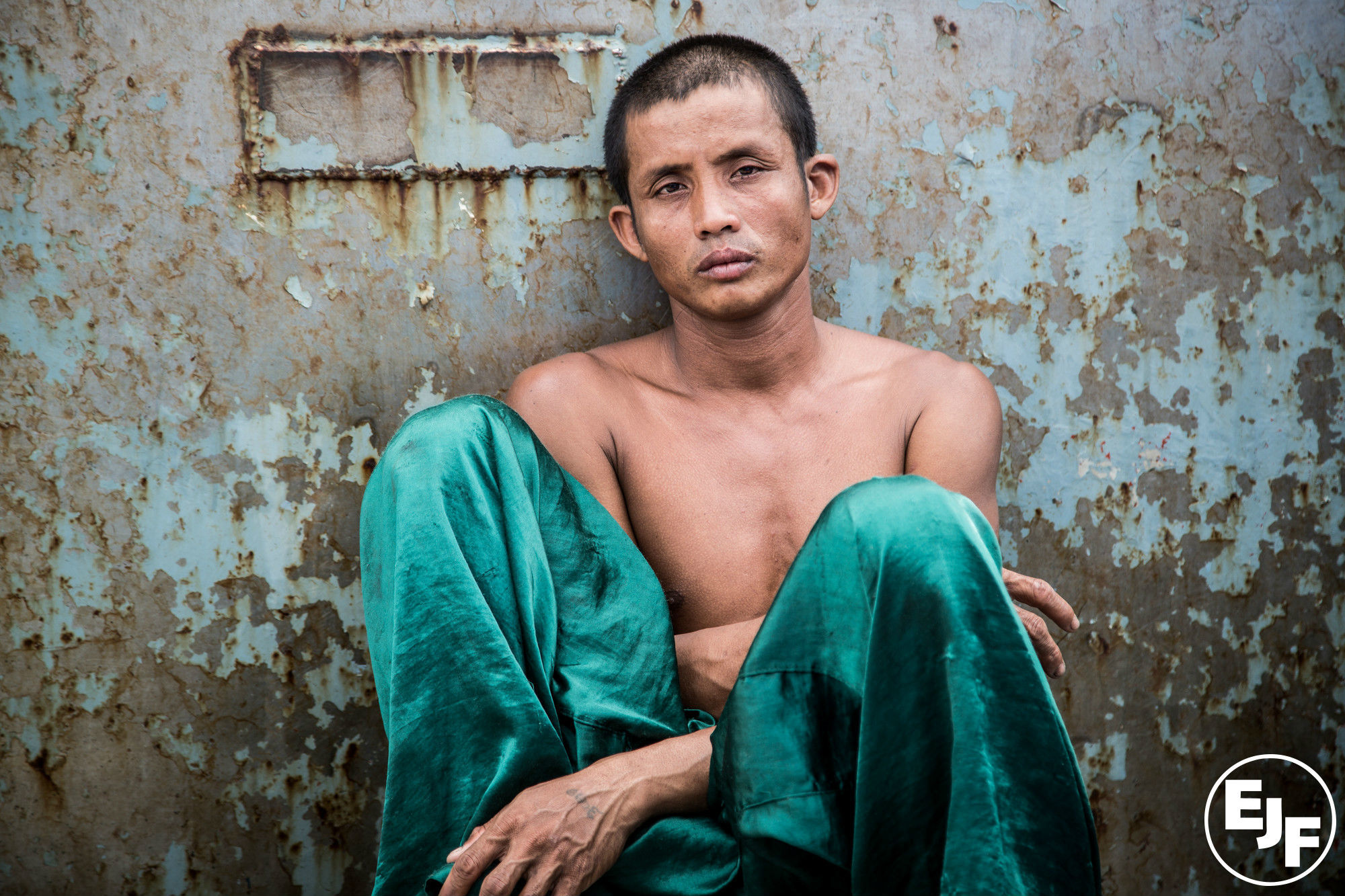
Thailand’s commitment to eradicating abuses in fisheries must be clear and firm
If Thailand is to leave behind its dark past of abuse in its fisheries, it must clearly outlaw forced, bonded and slave labour and ratify critical international standards of decent work in the fishing industry.
In recent years, Thailand’s fishing fleet has been the scene of slavery, brutal physical abuse, human trafficking, and even murder of vulnerable migrant workers. It has been plagued by unscrupulous operators using illegal practices to over-fish the world’s precious marine resources.
Failure to act against these criminal operators led to global notoriety for Thailand’s seafood sector, as one of the most abusive and destructive economic sectors in the world.
At the Environmental Justice Foundation (EJF), we spoke to fishers who had escaped their water-bound prisons, and their stories were hard to hear.
International scrutiny brought censure from the US State Department, as the 2014 Trafficking in Persons report classified the country as ‘tier 3’ – the lowest possible ranking. In turn, the European Union issued a formal warning over illegal, unreported and unregulated fishing – a ‘yellow card’ – that could lead to import bans to the EU.
But since these revelations, and international attention, the Royal Thai Government has worked to change things, and opened up discussions with EJF on how best to deal with the issues. EJF now works alongside the highest levels of the Ministry of Labour and other agencies to bring about substantive and permanent reforms.
We have witnessed substantial improvements in Thailand’s monitoring, surveillance, and enforcement capabilities, and innovative efforts such as the use of covert patrol vessels to combat illegal fishing. Recently, Thailand became one of the first countries in Southeast Asia to publish a full list of all its registered and licensed fishing vessels, alongside a watchlist containing vessels prohibited from fishing. This is essential information for holding the industry to account and show’s Thailand’s commitment to transparency. These actions are to be applauded.
Yet, essential work remains to be done.
Although the Royal Thai Government successfully ratified International Labour Organization’s (ILO’s) Forced Labour Protocol earlier this year, it is yet to implement it in domestic law. The illegality of forced labour must be clear in Thai law and it must clearly follow the ILO definition of what constitutes forced labour and, crucially, set sufficiently high punishments for offenders to deter future crimes.
Delays in introducing such a provision put in jeopardy much of the hard work and achievements already in place.
When I met with Thailand’s Deputy Prime Ministers Prawit Wongsuwan and Chatchai Sarikulya, and Minister of Labour Adul Sangsingkeo last month, all pledged that by the end of the year, Thailand would also have ratified the ILO’s Work in Fishing Convention C188, which sets the standards for decent work in the fishing industry.
This is a commendable and wholly achievable goal. However, if swift action to ratify is not taken, the chance will slip from the government’s grasp.
Industry representatives such as the National Fisheries Association of Thailand (NFAT) are using aggressive and disruptive tactics to derail legislative reforms. Only last month NFAT attempted to shut down a public hearing hosted by the Ministry of Labour on drafting the Forced Labour Act. And NFAT continues to spread discord, disseminate misinformation and disrupt the efforts toward much needed reforms.
I believe that the actions taken by NFAT do not represent the interests of employers or reflect their goals. It is important to include industry in discussions as part of public participation in government decision making, but the Royal Thai Government must make sure all voices are heard and not allow just the few to be heard in this vital process.
A new fit-for-purpose forced labour provision in Thai law, and ratification of C188 this year are crucial to drive home the improvements Thailand has engaged to create legal, ethical and sustainable fisheries, restore its reputation and become a widely recognised leader in this field.
These measures are essential if Thailand is to escape the shadow of its dark past.
SIGN UP FOR OUR EMAILS AND STAY UP TO DATE WITH EJF

